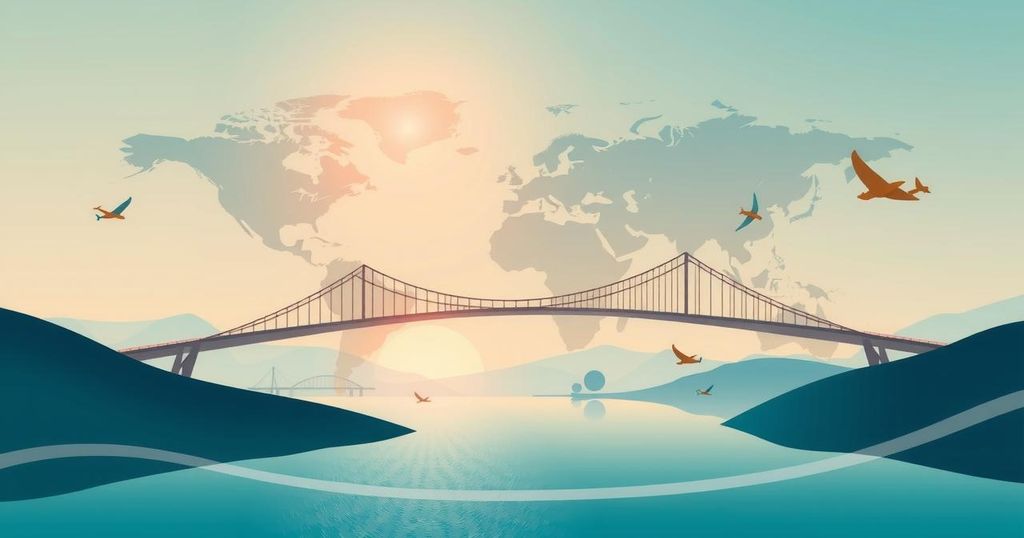Costa Rica has begun detaining U.S. deportees, including many minors, as part of a deal with the Trump administration, which follows similar actions by Panama. The deportees will be held at a facility near the Panama border while arrangements for their repatriation are made. Human rights advocates have raised concerns about the implications for asylum seekers and the treatment of detainees during this process.
Costa Rica has joined Panama in detaining deportees from the United States during stopovers back to their home countries. A flight from the U.S. carrying 135 deportees, including approximately half who are minors, is anticipated to arrive at Costa Rica’s capital. Upon arrival, these individuals will be transported to a rural holding facility close to the Panamanian border, where they may remain for up to 30 days while awaiting repatriation to their respective countries. The Trump administration has secured this arrangement with Costa Rica as part of a broader effort to enhance deportation processes.
The agreement allows for the U.S. government to cover the expenses involved with the deportation flights. This initiative follows recent discussions led by U.S. Secretary of State Marco Rubio, establishing similar protocols between the United States and several Latin American nations. However, invoking third countries for deportation layovers has garnered significant criticism from human rights advocates, who express concerns about the treatment and processing of asylum seekers.
Honduras has recently noted its involvement in temporarily hosting a deportation flight for Venezuelans, which was labeled a “humanitarian bridge” due to the lack of direct flights from the U.S. to Venezuela. A flight carrying 170 Venezuelans landed at a joint military base in Honduras and was promptly transferred to a Venezuelan aircraft. The Central American nation indicates it is willing to facilitate future transfers under specific circumstances.
President Rodrigo Chaves of Costa Rica stated that the country is aiding its “economically powerful brother from the north,” referring to the U.S. The arrangement aligns with pressures from the Trump administration on regional countries to participate in deportation efforts, amid threats of economic sanctions or tariffs. Previously, Panama has accepted 299 deportees, with some subjected to detention in hotel accommodations and others in remote camps.
Omer Badilla, Costa Rica’s deputy minister of the interior, remarked that many deportees on the upcoming flight are family groups, including 65 children and two pregnant women. He indicated that assurances have been made by U.S. officials that most deportees have consented to their return to their home countries. Furthermore, should deportees decline voluntary return, Costa Rica offers options for refuge or assistance through the United Nations’ International Organization for Migration (IOM).
In Costa Rica, human rights guarantees are a priority, and Badilla highlighted the nation’s commitment to ensuring that deportees are safely returned to their countries. The detention facility, which has previously faced criticisms regarding poor conditions, will be supervised by U.N. officials and other humanitarian organizations to ensure the protection of migrant rights. There exists an expectation to process returned migrants from the U.S. who are now seeking to go back to their home nations.
The IOM has affirmed its role in offering humanitarian aid without directly overseeing the detention processes of individuals. The organization upholds its obligation to treat all migrants with dignity and in accordance with international standards, facilitating voluntary returns and identifying safer alternatives for others among the deportees.
In conclusion, Costa Rica’s involvement in detaining deportees from the United States signifies a growing trend among Latin American nations following U.S. pressure to assist in deportation efforts. This initiative raises concerns regarding human rights and the treatment of vulnerable populations, particularly minors and asylum seekers. The arrangement demonstrates the complexities of international migration policies and the role of third countries in addressing deportation challenges.
Original Source: www.independent.co.uk




